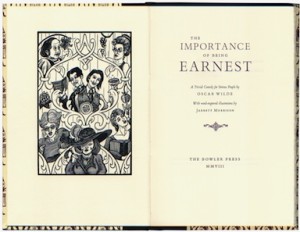By now if you have tried to google this word you would have realised that it does not exist in the lexicon of English. In fact what you would have found is that the dictionary automatically changes it to “numbering around”, so, what does bumbering mean?
The word bumbering originated partly from the German word, “bum-meln” meaning to stroll or to take it easy. The word is also reflected in French Flaneur, a word which carried a set of rich associations: the man of leisure, the idler, the urban explorer, the connoisseur of the street.
It was Walter Benjamins drawing on the poetry of Charles Baudelaire who made this figure the object of scholarly interest in the 20th century, as an emblematic archetype of urban, modern experience. Following Benjamin, the flâneur has become an important symbol for scholars, artists and writers.
And for those who have seen the play, The Importance of Being Earnest by Oscar Wilde, the meaning conveys a further subtle layer. First performed on 14 February 1895 in London, it is a farcical comedy in which the protagonists maintain fictitious persona to escape burdensome social obligations.
In the play, Jack Worthing, the play’s protagonist, is a pillar of the community and has responsibilities but for years has pretended that he has a cousin called Ernest, who leads a scandalous life. This phantom allows Jack to disappear for days and do what he likes. His very good friend Algernon suspects that Jack may be leading a double life, a practice he seems to regard as commonplace and indispensable to modern life. The double life is the central metaphor in the play, epitomized in the notion of “Bunbury” or “Bunburying.”
As defined by Algernon, Bunburying is the practice of creating an elaborate deception that allows one to misbehave while seeming to uphold the very highest standards of duty and responsibility.
He calls a person who leads a double life a “Bunburyist,” after a non-existent friend he pretends to have, a chronic invalid named Bunbury, to whose death-bed he is forever being summoned whenever he wants to get out of some tiresome social obligation. In summary continued absence was explained in the play as “being always away, bunburying through the countryside!”
So in the context of this blog, the word using modern spelling ‘bumber-ing’ is a combination of the German and French words and with a touch of meaning from the play. It does not mean deception but it certainly does mean leaving behind general responsibilities – for a short or long time depending on personal circumstances.
It means to take your time, look at things and do not hesitate to take a detour if you wish. Bumbering is more than just being on holiday and doing nothing. It reflects a state of mind which is embedded in the journey of life – it is about exploring and learning about life around you and most importantly it a journey of discovery about self.

